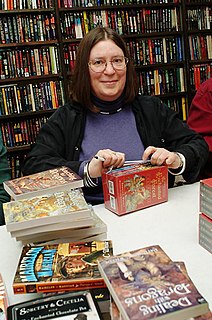A Quote by Marc Randolph
In 'That Will Never Work,' I give readers a clear-eyed insider's look into how one of the least likely startups grew into one of the world's most successful companies.
Related Quotes
Companies that acquire startups for their intellectual property, teams, or product lines are acquiring startups that are searching for a business model. If they acquire later stage companies who already have users/customers and/or a predictable revenue stream, they are acquiring companies that are executing.
On a clear day, rise and look around you, and you'll see who you are.
On a clear day, how it will astound you
That the glow of your feelings outshines every star.
You will follow every mountain, sea and shore,
You will see from far and near a world you've never seen before.
On a clear day, on a clear day, you can see forever, and ever, and ever more.
Because you've been exposed to Western tonal music, you know after a certain chord sequence what the next possibilities are. Your brain has compiled a statistical map of which ones are most likely and least likely. If the song keeps hitting the most likely notes, you'll get bored, and if it's always the least likely ones, you'll get irritated.
I’m imagining that paper books will evolve to become something akin to candles - we have them in our homes and cherish their light, but don’t light our homes with them. Readers of Lincoln’s era would likely be surprised at how well-lit our homes are, and I think it’s likely that we will be surprised at how well-read future book readers will be.
Most readers look at the photograph first. If you put it in the middle of the page, the reader will start by looking in the middle. Then her eye must go up to read the headline; this doesn't work, because people have a habit of scanning downwards. However, suppose a few readers do read the headline after seeing the photograph below it. After that, you require them to jump down past the photograph which they have already seen. Not bloody likely.
Before, companies and startups had to lay up all this capital for data centers and servers, and take your scarce resource, which in most companies is engineers, and have them work on the undifferentiated heavy lifting of infrastructure. What the cloud has done is completely flipped that model on its head so that you only pay for what you consume.

































